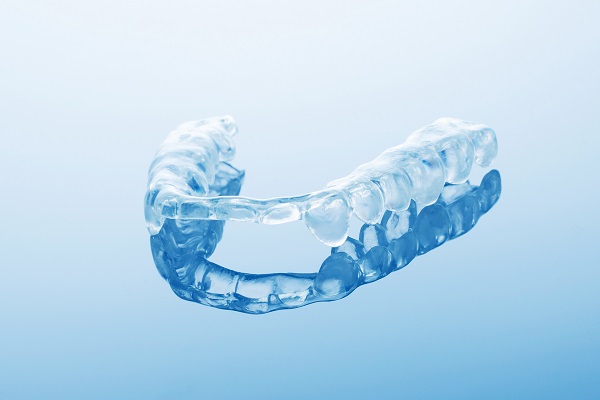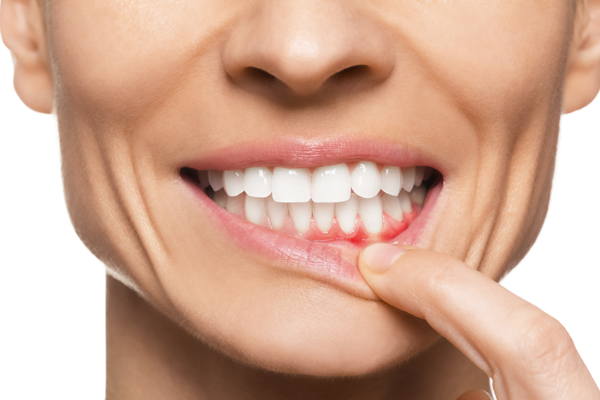When do General Dentists Recommend Night Guard Treatment?

Looking for more information on night guard treatment? Bruxism is a term used for people who grind and/or clench their teeth, which can be done during the day and/or during the night. Those who grind at night often experience damaged teeth, which can be addressed by using a night guard. Ready to learn more?
General dentists treat clenching, grinding
Individuals that experience tooth-related problems that are negatively affecting the overall health of the mouth require the help of a general dentist. In the case of bruxism or jaw clenching, a night guard may be the appropriate solution.
The best way to know whether or not night guard treatment is needed is to be evaluated by a general dentist. General dentists have undergone the extensive training that allows them to treat people who grind and/or clench their teeth, with night guard treatment being one of the more common treatments utilized.
Protecting teeth from damage
The information below explains when general dentists will recommend night guard treatment. When suffering from jaw clenching or teeth grinding, it can be helpful to thoroughly review the following information.
When teeth start to flatten, fracture, chip or become loose
When someone grinds and/or clenches their teeth during the night, their teeth are not protected from any possible damage due to participating in this act. This is because many people are not aware of what they are doing when they are sleeping. They often do not realize they are causing damage to their teeth until they start to actually see the damage. Some of the more common types of damage include flattened teeth, fractured teeth, chipped teeth and loose teeth, which can all be prevented by wearing a night guard.
When patients start experiencing increased tooth sensitivity
The constant act of grinding and/or clenching one’s teeth will eventually begin to wear down the enamel of their teeth. Once someone starts to experience a loss of tooth enamel, they will also start experiencing an increase in the overall sensitivity of their teeth. This means when eating hot, cold or sweet foods, some level of sensitivity will be experienced. This sensitivity can be minimal or it can be extreme, which can result in difficulty eating or drinking.
Additionally, weakened enamel can result in less strength and durability. Over time, the teeth can break down and become susceptible to decay, cracking or chipping.
Side effects
Individuals that grind their teeth or clench their jaw may also suffer from other symptoms, such as headaches, soreness in the jaw and difficulty sleeping through the night. When these symptoms start to become regular, a general dentist may take note of them and recommend a night guard.
Conclusion
Those that suffer from jaw clenching or teeth grinding should visit a dentist quickly to determine the appropriate course of treatment, which may begin with a night guard. To find out more or to get started with an appointment, reach out today.
Are you considering night guard treatment in the Tyler area? Get more information at https://www.timsmithdental.com.
Check out what others are saying about our dental services on Yelp: Night Guards in Tyler, TX.
Recent Posts
Practicing preventive dentistry at home allows you to reap many benefits for your general health. Brushing and flossing every day is a basic way of keeping your mouth in good shape. Having healthy teeth and gums helps support your whole body’s health. If you want to find out why good everyday dental hygiene is important…
Preventive dentistry deals with dental procedures to prevent dental issues, and it is critical for anybody who wants to keep their natural teeth for the rest of their life. Dentists used to spend most of their time treating dental issues rather than preventing them.Due to people's overly busy schedules, it is easy to put off…
Preventive dentistry can support your efforts to keep your mouth healthy, including practicing good oral hygiene, eating a balanced diet, and avoiding things that can damage your teeth and gums. Good oral hygiene goes a long way in helping to prevent common dental issues, such as tooth decay and gum disease, but sometimes it is…
The role of preventative dentistry is to minimize the risk of future dental issues in patients. Read on to learn some tips that encourage the prevention of oral issues. If you have experienced and treated dental issues in the past, you will attest that it is better to prevent them from happening in the first…


